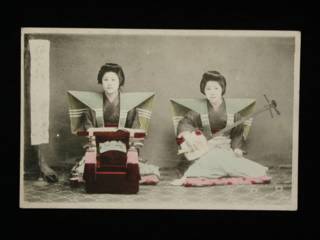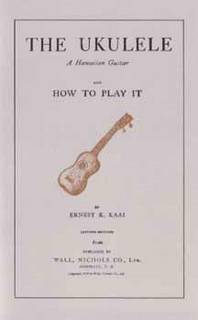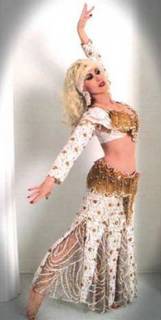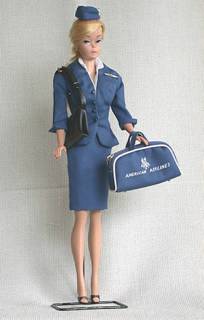Saturday, November 13, 2004

Limbo
Fishermen at Ballyshannon
Netted an infant last night
Along with the salmon.
An illegitimate spawning,
A small one thrown back
To the waters. But I'm sure
As she stood in the shallows
Ducking him tenderly
Till the frozen knobs of her wrists
Were dead as the gravel,
He was a minnow with hooks
Tearing her open.
She waded in under
The sign of the cross.
He was hauled in with the fish.
Now limbo will be
A cold glitter of souls
Through some far briny zone.
Even Christ's palms, unhealed,
Smart and cannot fish there.
Seamus Heaney
Thursday, November 11, 2004

Sasaki Takatsuna
Meanwhile all these years, the horse-keeper's son, Nenosuke, has been zealous in the discharge of his duties as horse-keeper. His sister Omino, on the other hand, bears a grudge against Takatsuna for killing her father. In order to avenge her father's death, she has come to Takatsuna's mansion to kill him with a woodsman's hatchet she hides in her bosom. In contrast Nenosuke is moved by the consideration of Takatsuna's consideration in never failing to hold the monthly memorial service for their father. Thus Nenosuke tries desperately to dissuade his sister from carrying out such a reckless act. Just then Takatsuna, having found spiritual enlightenment, emerges from the memorial service with his head shaved intending to become a monk . He has made up his mind to go to Koyasan, headquarters of the Buddhist Shingon sect, where he is going to sever all ties of the flesh and live in eternal tranquillity. This provides the perfect chance for Omino to attack. She dashes forward and attempts to impale him. But Takatsuna disarms her, pins her down, and then thrusts her away saying, ''Here is another who, like me, needs to be released from their evil passions.'' He collects the horse from Chizan and leaves for Koyasan as an evening temple bell rings in the distance.Wednesday, November 10, 2004

Ernest Kaai was the first Hawaiian-born virtuoso ukulele player and was a formidable figure in the Hawaiian music world in the first quarter of the 20th century. Besides being adept at the ukulele, Kaai was also a superb violin, guitar and steel guitar player. By the age of 19, he was playing in and organizing ensembles. At one time, he had as many as 12 bands playing in the Islands. He not only promoted Hawaiian music in Hawaii, but on the mainland as well. But it was as a ukulele player that most remember Kaai. It was Johnny Noble, Hawaii's greatest composer, who said Kaai was "Hawaii's greatest ukulele player". Due to his musical ability, he is credited with making the ukulele into a featured instrument in Hawaiian groups. He also published the first ukulele instruction book, "The Ukulele, A Hawaiian Guitar", published in 1916. This book presented the ukulele as a sophisticated musical instrument and included exotic chords and and complicated strums. In 1940, Kaai retired to Miami, Florida, where he opened a music store and performed off and on. He died in 1961.
Tuesday, November 09, 2004

Amato Amo Amerò
This is what love does to things: the Rialto Bridge,
The main gate that was bent by a heavy lorry,
The seat at the back of a shed that was a suntrap.
Naming these things is the love-act and its pledge;
For we must record love's mystery without claptrap,
Snatch out of time the passionate transitory.
From The Hospital by Patrick Kavanagh

Wedding Cake Island - Coogee, Australia
See the surf comes rolling ever onwards
Meets the land and melts in creamy foam
Breaks upon the shore and scatters quickly
Like a million pearls let loose to roam
Watch the spray which melts in liquid sunshine
Tossed up from the bosom of the deep
High above in varied colors forming
Like the mermaids rising from their sleep
From Across the Sea by Ernest Kaleihoku Kaai (1881-1961)
Thursday, November 04, 2004

At the Mykonos
As globules of foundation pullulated
on a wet, tanned back,
a quiet mountain-range of sweat quivered
around the poorly-lit ballroom.
Its carrier was extrapolated
between strobe ignitions
like an earthquaking Atlas meticulously
avoiding splinters
here in the Mykonos. A cyclic mimesis
to last year's video-taped weddings
when wearing
her precipitating marble-skeined drape,
a plumage of fifty-dollar bills had been bluetacked
onto her
like clashing interpretations
on a speculative text. But later
pared to the root, in a diamantina corset,
her candelabra stomach orbited
her fish-net legs, and her denture
rose like a new-moon into the bazooki planetarium
of water-hose lights and mirror tiles.
Tuesday, November 02, 2004

Travel
The other day, returning from my farthest trip yet, it became clear:
I hadn't woken up to travel. I was still
locked in a jet, motionless.
Beneath me, there were clouds that looked like deserts,
and deserts that looked like seas, and seas
that looked like snow drifts that would freeze
our flapping shadow. I fought the anaesthetic. I tripped over
cables laid deep in the ocean. Time
drained from my body. My eyes became glazed with care.
And the word on the tip of my tongue leaked out
in a choice of languages. I upgraded
to "vacation".
I learned this:
"All runways are tarred with the same brush"
Or perhaps:
"Hospital rooms are beacons in some universes".
In the transit lounge,
expectations were managed. This is purpose.
I drank it with my mother's milk. I am hard-wired. "Travel
is just a test drive."
(after the German of Durs Grünbein)
Monday, November 01, 2004

Optometry
The optician's task is not to question
the concentration camp or the predilection
for wire-rimmed spectacles in the face
of new horned-frames. In fact, what is central
to the recurring theme of correction is:
One: an afternoon with your wife. Two:
some cognac and stockings, if you could. And
three - well, yes - three. What is there to say
but we told you so; - that in that
split-second where you are glancing upwards, there
in the photo, we notice your eyes have curiously become
two grey coins. And we entitle it
"Overcast Sky".
And we judge you harshly for it.
